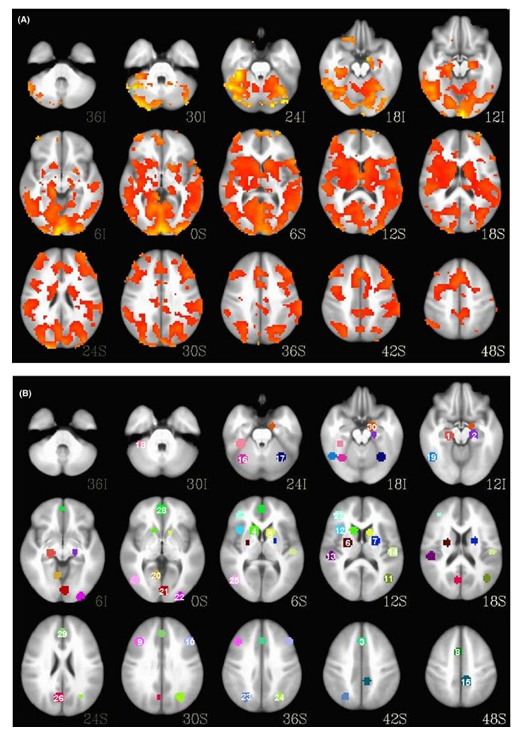By Gary Elinoff, contributing writer
At first, it might be difficult to see any correlation between psychiatry and destroying enemy planes in combat. But consider that in air combat, there are a huge number of decisions to make from a vast range of choices, with each decision leading to a new fork in the road that presents another array of possibilities. In a similar light, according to Dr Caleb Adler of the University of Cincinnati (UC) College of Medicine, there are many treatments now available for the treatment of bipolar disorder. But choosing which one will work best for an individual patient has proven to be a baffling process.
Enter fuzzy logic
The genetic fuzzy logic AI known simply as “Alpha,” initially developed to help pilots destroy enemy aircraft, has been adapted by researchers at UC to help doctors choose which potential treatment for bipolar disorder will work best in the case of an individual patient.

Brain scans compared for bipolar patients (top) and healthy patients (bottom). Source: University of Cincinnati.
The original military AI was developed by Psibernetix, Inc and dubbed as Alpha. Kelly Cohen, an AI engineer at UC, approached Psibernetix CEO, Nicholas Ernest, about the potential use of his development in medicine. They then found an audience in Dr. David Fleck at UC’s Medical School.
A result of the collaboration was LITHia, the Lithium Intelligent Agent. Prior to this work, it was only possible to predict, with 75% accuracy, which bipolar disorder patients would respond to treatment with lithium. With the new AI modality, that percentage shot up to 100%. In addition, there was 92% accuracy in predicting the exact reduction of symptoms.
Genetic fuzzy logic doesn’t rely so much on definitions as it does on generalizations. Weaker choices are discarded, in a manner similar to Darwinian natural selection, or, as Cohen describes it, teaching a child how to recognize a chair. As he explains it, after seeing a few examples, the child will learn to recognize the object that people sit in as a chair, despite variations in size, shape, or color. With LITHia, the training involved analysis of two types of brain scans along with other data.
Personalized medicine
The truly eyebrow-raising note was that only objective biological data was a factor in the analysis; the opinions of physicians had no influence at all. In addition, the results were not merely general. Each analysis is relevant specifically to an individual patient.
Results like these have implications beyond avionics and psychiatry; they represent another step in the journey to truly personalized medicine, rather than today’s one-size-fits-all modality, which can help reduce the cost and risks of side effects.
In the meantime, UC researchers and Psibernetix have started a new study: applying fuzzy logic to diagnosing and treating another puzzling condition — concussions.
Advertisement
Learn more about Electronic Products Magazine





